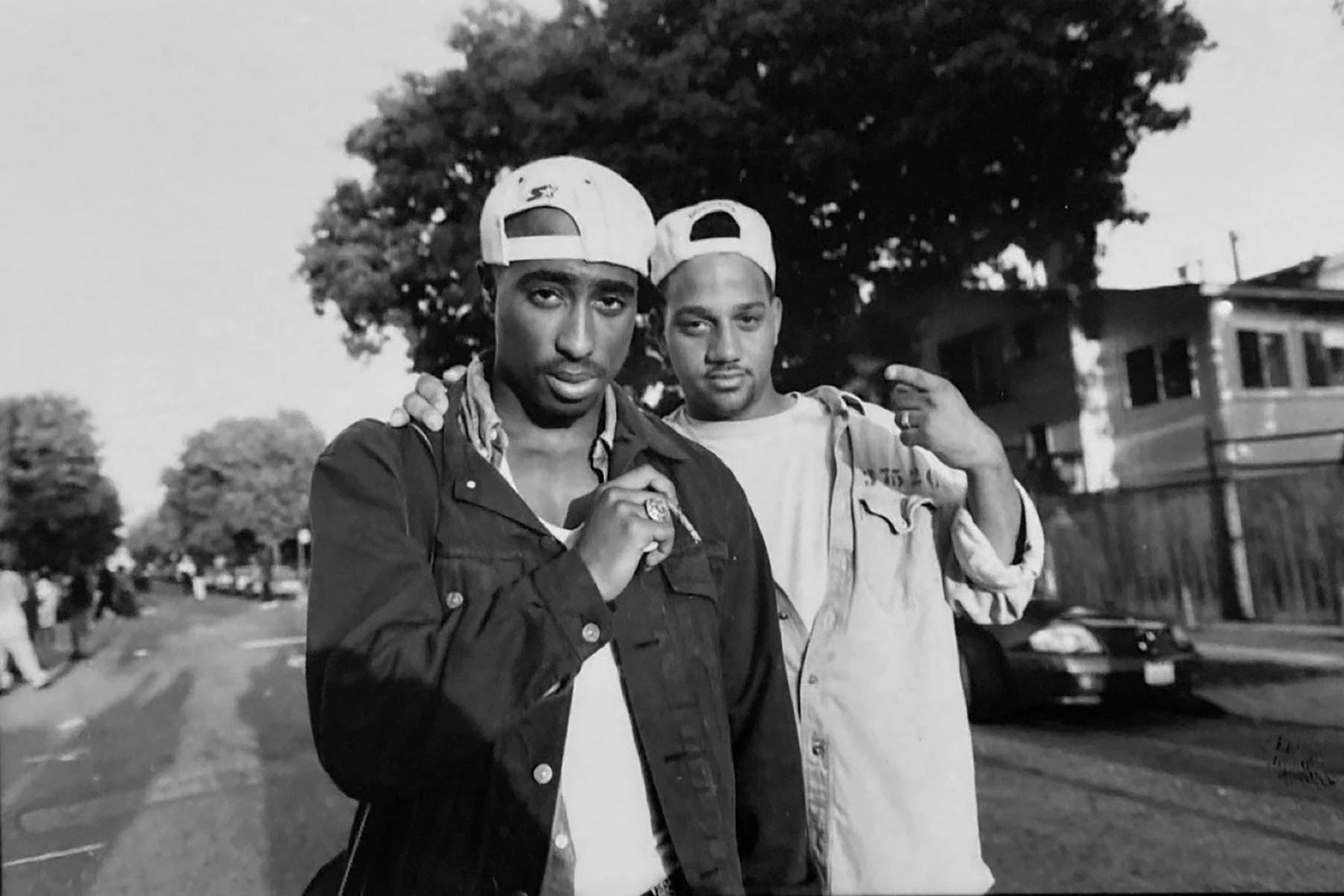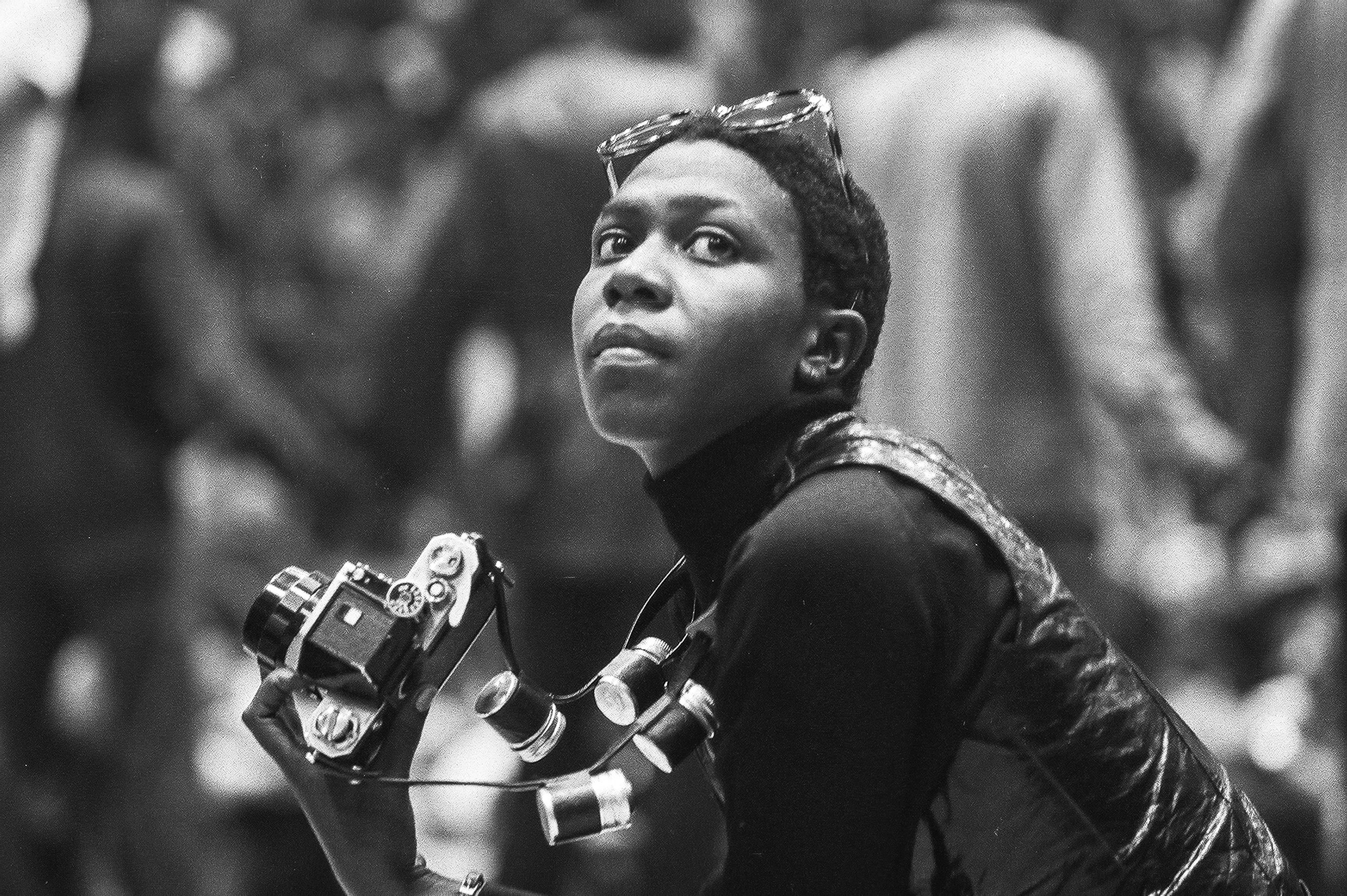Exclusive: Catching Up with Allen Hughes, executive producer, writer and director of FX’s Dear Mama: The Saga of Afeni and Tupac Shakur
Among the series Emmy eligible for Outstanding Documentary Or Nonfiction Series is FX’s Dear Mama: The Saga of Afeni and Tupac Shakur, the 5-part docuseries that paints a portrait of global superstar Tupac Shakur and the woman who shaped him, his revolutionary mother Afeni Shakur. During its run, Dear Mama set a ratings high as the most watched unscripted series debut in cross-platform viewers across FX and Hulu.
In telling the story of Tupac and Afeni Shakur, executive producer, writer and director Allen Hughes shares insight into the intersection of Black activism and contemporary music. Interesting/little known fact about Afeni Shakur – her activism led to the Patient Bill of Rights established in the 1970s.
In addition to Dear Mama, Hughes is the Executive Producer of the upcoming Netflix docuseries Arnold, which debut on June 7, chronicling Schwarzenegger’s journey from the countryside of Austria to the highest echelons of the American dream.
Hughes’ previous work includes HBO’s The Defiant Ones (Dr. Dre and Jimmy Iovine), The Book Of Eli (Denzel Washington) and the iconic film Menace II Society in his directorial debut with his brother Albert Hughes.
Among the team on Dear Mama executive producer and writer Lasse Järvi and executive producers Quincy Delight Jones III (QD3), Staci Robinson, Nelson George, Charles King, Peter Nelson, Adel “Future” Nur, Steve Berman, Marc Cimino, Jody Gerson, John Janick, Jamal Joseph and Ted Skillman. The five-part docuseries is produced by A Defiant Ones Media Group Production and An Amaru Entertainment Production in association with MACRO, Polygram, Interscope and DreamCrew Entertainment.
Blackfilmandtv.com caught up with Hughes as he spoke about his work on Dear Mama.
How did this project come about for you?
Allen Hughes: When I got a call from a the estate’s attorneys who wanted me to meet with Tupac’s state, and I went and met with them, and they told me they want to pursue a documentary and whether I was interested or not. I told them to give me a few days, and I'm not sure that I can do another one; and there's some personal history. So after a few days, I gave it some thought and said I'll do it if I can tell the story through his mother, and do it in multiple parts, and they agreed. That was all four years ago.
When you said personal history, was it good or bad?
Allen Hughes: Well, it was good and then it was complicated. We were all young and there was an incident that happened and it's pretty well documented so.
When you wanted to focus in on his mom, did they have any notes as far as what they wanted combined with what you wanted?
Allen Hughes: I knew some folks from Tupac’s estate. I known the executor of the estate. And I've met his family and they wanted me to do something complex and nuanced. But they never dictated anything.
Over the years since Tupac’s death, we’ve seen documentaries and films, and people portraying him and we’re still missing out on he really was. What did you want to explore that one wouldn’t read or find on the internet?
Allen Hughes: Most of it had to do with what he was born into and what his mother was going through the years prior to him being born. When he was born, she was on trial for her life. They inherited trauma. He was born when the FBI was trying to take down the Black Panthers, effectively, really taking them out. So he was born into what was considered paranoid, but we now know it was true. The dismantling of all his uncles and aunts and everyone in that movement. His rise as a budding star as well. A lot of stories were lost.
Doing a documentary is never an easy task. It takes a lot of time, it takes a lot of research, and you don't know where the end game is. You have to be in the right frame of mind as to what to expect when you're doing conducting interviews. Were there any challenges in between that time you were putting it together? When you have so much footage, the hardest part is the editing?
Allen Hughes: The hardest part here was just trying to get the psychological and emotional part right. And excavating his mother's side. Because there wasn’t a lot of footage and there wasn't a lot of photos. So a lot of the stuff that's in the film the estate didn't even know existed, so we had to do a deep dive there. A couple of years ago, the narrative was a little different because I was chasing all kinds of dragons. And then ultimately, me and my partner, my lead editor and producer decided that if it doesn't have to do with their relationship, or the impact on their relationship or their dynamic it had to go. That's what simplified the editing.
What about you deciding how to place the episodes? This is not a film, this is a series.
Allen Hughes: We wrote that out like a year before we started, like charting what we want the episodes to be, what will be more of the emotional trajectory, the journey, the arcs in each episode. But as you know, with documentary filmmaking, there's revelations every time you do interviews. So like the way it opens with the shooting of the two off duty cops in Atlanta, that was originally the plan. But then again, I didn't know that after he shot those cops, they went to the hotel room, and he played Dear Mama for the first record demo, until I interviewed his cousin. Although surprises happened along the way, we definitely had a plan of what we wanted to episodes to be.
Do you think years later, people will have a new perspective as to who these individuals were as opposed to what we saw during their lives before their deaths?
Allen Hughes: Especially with Afeni Shakur because all we knew about her was that she was a former Black Panther. She struggled with addiction and overcame it. And she's Tupac’s mother That's all we know about. Unless you did a deep dive as a journalist, you're not going to find much about her narrative. And even with Tupac, what he was going through mentally, emotionally and the psychological part of his journey, I don't think any of that was ever chronicled.
For you, as a filmmaker, you can never stop learning, and you've been on your own for some time without brother for a while. What have you've learned in the process of doing this documentary that helps you moving forward with whatever project you may happen to do next?
Allen Hughes: I trust my gut. Follow the instincts that I have. But also, more importantly, each project is different. Each subject is different. If you're interviewing someone, or you're working with talent, don't try to control things, just try to intuitively figure out what's going on and get to the heart of that. And let that be the guide. I learned through The Defiant Ones and in this one that I can bring a style. But don't get in the way of truth, or the essence of the spirit of the film or the narrative. Just grab onto a saddle on top and try to ride that. Be humble with the process. You're surrounded by talent, or subjects or artists or writers. Just you never know where the magical idea or narrative come from. Open your heart and your mind, especially in this one. I really learned on this one. Because before this project, I don't think I had compassion. And I completely do now.


